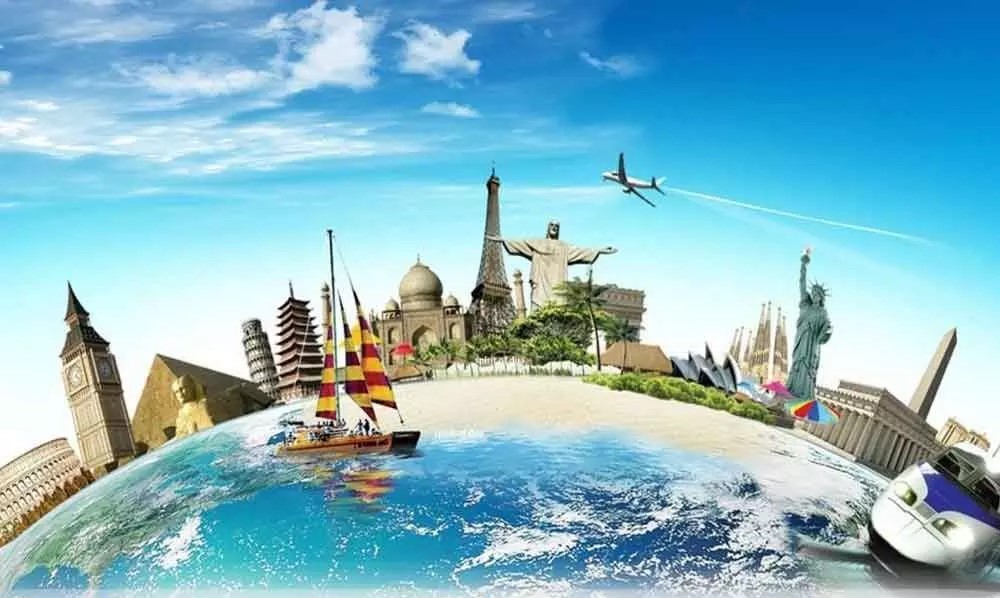
Tourism has become one of the most significant global industries, contributing to economic growth, cultural exchange, and personal enrichment. As travel becomes more accessible, diverse, and tailored to individual needs, it is reshaping the way people explore the world. From sustainable travel movements to new technological innovations, the tourism 旅行社 industry is evolving in response to changing consumer demands, environmental concerns, and global events. This evolution is creating both opportunities and challenges that will influence the future of how people travel.
One of the major driving forces in tourism today is technology. The digital revolution has dramatically transformed how people plan, book, and experience travel. Online booking platforms have simplified everything from flights to accommodations, while review sites allow travelers to make informed choices about where to stay, eat, and visit. Social media has also played a pivotal role in inspiring travel, as destinations and experiences are shared instantly, encouraging others to explore new places. Influencers, blogs, and virtual tours enable travelers to “preview” destinations before deciding to visit. The rise of mobile apps has made it easier to navigate foreign cities, communicate with locals, and discover hidden gems that might otherwise be missed.
Another significant trend in tourism is the growing emphasis on sustainable and responsible travel. As the environmental impact of tourism becomes more apparent, both travelers and industry leaders are seeking ways to minimize the carbon footprint of travel. Eco-friendly accommodations, reducing single-use plastics, and promoting local businesses are some of the ways the industry is adapting. Sustainable tourism aims to balance the benefits of economic growth with the need to protect natural and cultural heritage. Many travelers are now choosing eco-tourism, opting for experiences that are both environmentally conscious and supportive of local communities. This shift has also encouraged tour operators to create more sustainable itineraries that allow travelers to experience nature responsibly while contributing positively to conservation efforts.
Cultural tourism has also gained significant popularity in recent years. Travelers are no longer just looking for beach resorts or luxury getaways—they want to immerse themselves in the culture and history of their destination. This has led to a rise in demand for cultural experiences such as local cooking classes, heritage tours, and traditional performances. Destinations rich in history, art, and customs are capitalizing on this trend by offering more authentic experiences that allow visitors to connect with the local way of life. Cultural festivals, art exhibits, and educational programs are attracting tourists who seek more than just relaxation but a deeper understanding of the places they visit.
Adventure tourism is another segment that continues to grow. As people seek unique and thrilling experiences, destinations offering outdoor adventures such as trekking, climbing, and scuba diving have gained popularity. Adventure tourism appeals to those looking for excitement, physical challenges, and exploration of remote, pristine environments. Whether it’s hiking the mountains of Patagonia or diving in the Great Barrier Reef, adventure tourism offers a chance to experience the world in a way that is both exhilarating and transformative. However, with the growing popularity of these activities, there are concerns about the environmental impact, especially in sensitive ecosystems. Efforts to promote sustainable adventure tourism are crucial to protecting these fragile areas.
In the wake of the COVID-19 pandemic, the tourism industry experienced one of its most significant disruptions. With travel restrictions, lockdowns, and health concerns, tourism came to a near standstill, affecting millions of workers and businesses reliant on travel. However, the pandemic also prompted shifts in how people approach travel. Domestic tourism, where travelers explore destinations within their own countries, saw a resurgence. Many people began to appreciate nearby attractions and took road trips or staycations, rediscovering lesser-known gems close to home. As international travel slowly resumed, there has been a noticeable rise in “slow travel, ” where individuals spend more time in one destination, fully immersing themselves rather than rushing from place to place. This approach not only allows for deeper connections with the destination but also helps reduce the environmental impact of frequent flying.
The pandemic also sparked an increased interest in wellness tourism. Travelers, seeking to recover from the stress and uncertainty of the global crisis, began prioritizing mental and physical well-being. Wellness retreats, spa resorts, and yoga getaways have become sought-after travel options. This type of tourism focuses on relaxation, rejuvenation, and personal growth, providing an escape from the pressures of daily life. Wellness tourism is expected to continue growing, particularly as more people look for ways to combine travel with self-care.
As tourism rebounds post-pandemic, the industry is facing new challenges. The desire for more meaningful and sustainable experiences is driving changes in how destinations market themselves and the types of services they offer. There is a growing demand for personalized travel experiences, where itineraries are tailored to individual preferences and interests. Technology continues to play a role in this personalization, with apps and services that create customized travel plans based on data-driven insights about a traveler’s habits, preferences, and past experiences.
Looking to the future, the tourism industry will need to balance growth with sustainability. As more people around the world gain access to travel, the pressure on popular destinations will increase. Over-tourism remains a concern in places where the number of visitors exceeds the capacity to manage them, leading to environmental degradation and a loss of cultural authenticity. To combat this, many destinations are implementing measures such as limiting the number of tourists, promoting off-season travel, and encouraging visits to lesser-known areas.
In conclusion, tourism continues to be a powerful force for economic, cultural, and personal enrichment. However, as the industry evolves, it must adapt to the growing need for sustainability, authenticity, and well-being. By embracing these trends, the future of tourism can be one where exploration is balanced with respect for the planet, its people, and its cultures.